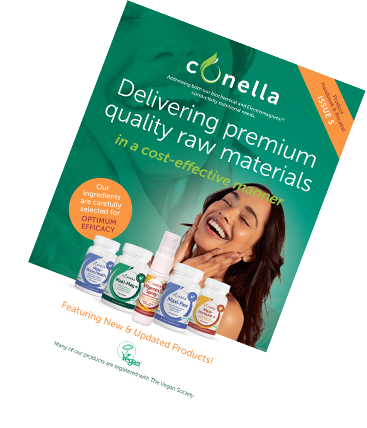According to a recent study from Laval University in Quebec, the anti-inflammatory properties of omega-3 fatty acids may result more from the effect of docosahexaenoic acid (DHA) than that of eicosapentaenoic acid (EPA).
The trial, which was covered in The American Journal of Clinical Nutrition, found that supplementing with DHA led to a more significant reduction in inflammation markers than an equal dose of EPA.
The study adopted a double-blind format, using 152 male and female participants to monitor these effects. According to the authors, their findings indicated that a dose of DHA administered over the course of 10 weeks modulated inflammation markers in healthy but obese adults more effectively than its EPA counterpart.
They noted that this research was important as most available studies used a combination of the two to monitor the anti-inflammatory effects of omega oils. However, as DHA was shown to be more effective in modulating lipid and inflammation risk factors, they suggested that these findings could help to develop improved CVD prevention strategies moving forward.
More research is needed
While noting the potential utility of these findings for future research re-treatment options, the authors of the study said it was wise not to ‘tilt the odds’ in favour of one omega-3 over another. In part, this is because further study is required before any firm conclusions can be drawn.
Commenting on the study, Dr Harry Rice, an expert in the field, explained that while these trials are useful from a scientific perspective, they can often be distorted by the media. In light of this, he suggested that the findings should not be twisted to suggest that one omega-3 fatty acid is necessarily superior to another.
He, therefore, recommended that, rather than taking this research as concrete fact, it was wise to acknowledge that both could have their uses, with each carrying superior benefits for some conditions over others.
The best way to approach the research in light of this, he said, would be to begin or continue eating a diet that’s high in fatty fish – a food source that contains both EPA and DHA. Were this felt to be insufficient, he suggested taking a supplement that includes both of these compounds for maximum benefit.
The study in detail
The study in question was led by Dr Benoit Lemarche and looked at the effects of DHA and EPA on 48 men and 106 women. Each of these received either 2.7 grams of EPA, DHA, or corn oil per day to see how this impacted certain inflammation markers.
Conducted over the course of 10 weeks, the study revealed some interesting findings. Firstly, it indicated that DHA supplementation led to a far greater decrease in interleukin-18 levels. However, no notable differences were recorded for IL-6, CRP, or tumour necrosis factor-alpha.
Secondly, in terms of lipids, DHA had a greater impact on reducing HDL-cholesterol levels and triglycerides than supplementing with EPA, while also bringing about a positive increase in HDL levels.
Among men, a notable increase in LDL cholesterol levels was also seen, although this same trend was not found among the study’s female participants. According to the researchers, the difference in impact between men and women should encourage further study in this area.
The researchers also noted that certain findings indicated an increase in the LDL particle size when DHA was administered. However, they said this could not be corroborated nor falsified without additional research being carried out.
What this means for you
When new medical research is published, it can prove confusing for the laymen or women reading these articles. As Dr Rice cautions, it’s important not to run away with these findings nor to place greater importance on them than they deserve.
However, what we would say is that this study reinforces the utility of DHA supplementation, particularly in light of its efficacy as an anti-inflammatory. For this reason, we would suggest looking for products that contain this compound alongside EPA when formulating a diet plan.
So is DHA more effective in fighting disease? Certainly, it appears to have more potent anti-inflammation properties, but it’s impossible to accurately and authoritatively answer this question until further research is carried out.










